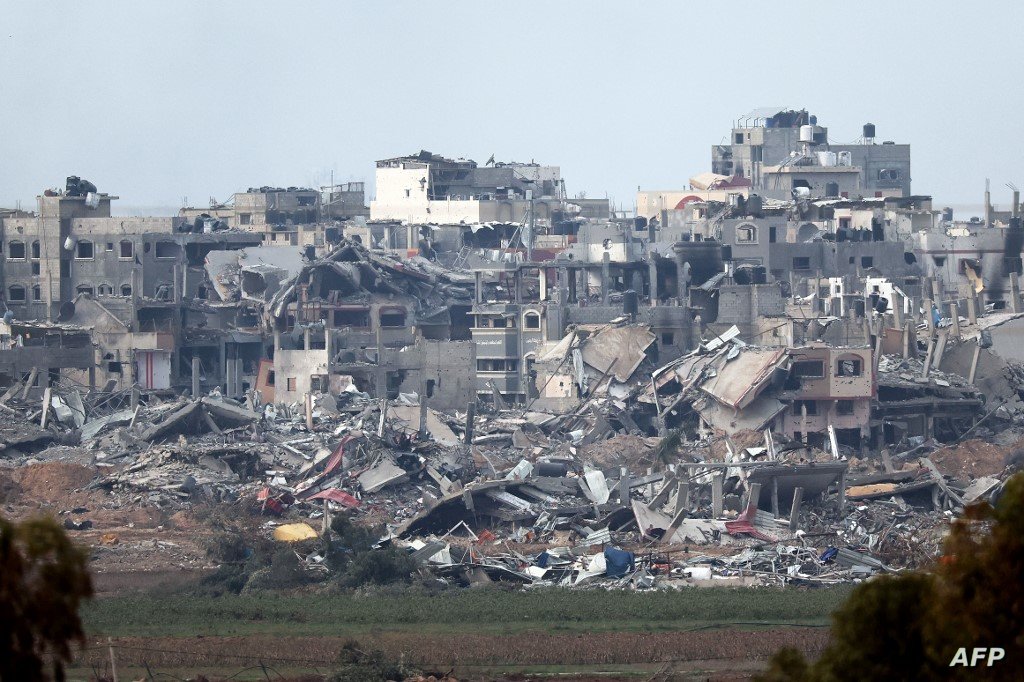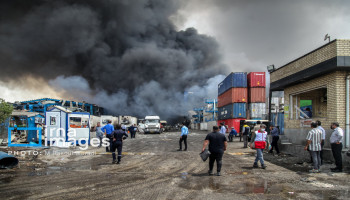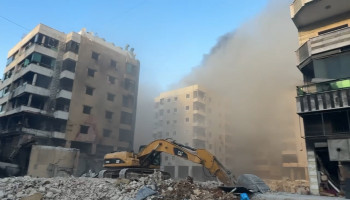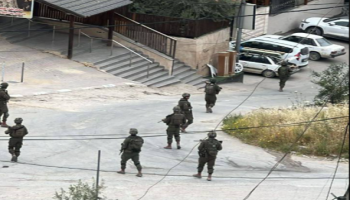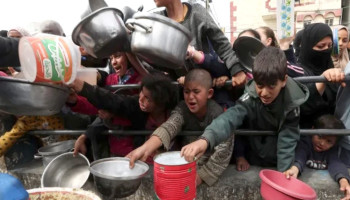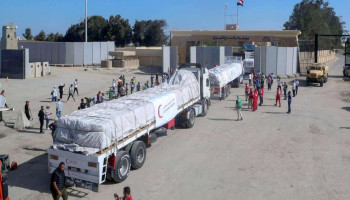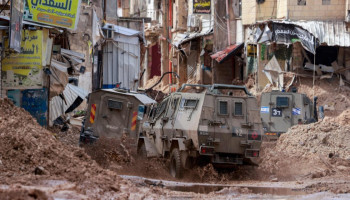Despite relentless attacks, Gaza has refused to surrender. The Palestinian resistance has engaged the Israeli occupation forces at close range, inflicting heavy losses and proving that its resolve cannot be broken. Over 46,000 Palestinians—children, women, men, and fighters—have been martyred, yet the resistance continues to strike back. Every time Israeli occupation forces believe they’ve secured a foothold, new resistance emerges, keeping them locked in a costly cycle of attrition.
Northern Gaza: A Testament to Failure
In northern Gaza, the Israeli enemy’s aim of “zero confrontation” through systematic genocide and forced displacement has also faltered. Last week in Beit Hanoun, the Israeli occupation forces faced significant setbacks, acknowledging their failure even as they tried to regroup their forces.
The Question of Prisoners
One of the Israeli enemy’s primary objectives has been the retrieval of its captives. However, its strategy of annihilation has failed to achieve this. Any resolution remains contingent on agreements dictated by the Palestinian resistance, which, despite enduring immense hardship, has maintained its strength and thwarted the Zionist entity’s attempts to establish full control, even over small areas of the enclave.
Ceasefire Talks Spark Internal Tensions
As reports emerge of a potential ceasefire agreement in the coming hours or days, tensions within the Zionist government are boiling over. Far-right ministers Itamar Ben Gvir and Bezalel Smotrich are threatening to resign if the agreement moves forward.
Ben Gvir criticized the deal as a “surrender,” urging Smotrich to join him in pressuring Zionist Prime Minister Benjamin Netanyahu. Meanwhile, Israeli Channel 12 reported that Smotrich is consulting with senior rabbis over the prisoner exchange deal.
The right-wing minister, who previously called the agreement a “disaster for Israel’s national security,” hinted at issuing an ultimatum to Netanyahu in the coming hours. He condemned the proposed terms, which reportedly involve releasing high-profile Palestinian prisoners, ending the war, and nullifying Israel’s so-called achievements.
Admission of Defeat
Through the voices of its leaders, the Zionist entity has effectively acknowledged its failure. The narrative of invincibility is crumbling as the war shifts from conquest to survival for an occupation increasingly entangled in its miscalculations.
Positive Progress in Doha Negotiations
Spokesman for the Qatari Foreign Ministry, Majed bin Mohammad Al-Ansari, announced today that discussions in Doha have entered the final stages. He described the talks as “productive and positive,” focusing on the last remaining details, and hinted that an official announcement of the agreement is imminent.
“We have overcome the primary obstacles in the disagreements between the parties,” Al-Ansari stated, adding, “When the agreement is announced, it will also mark the start of the ceasefire implementation.” He further noted that draft agreements have been submitted, and negotiations are now centered on resolving the final details regarding the Gaza ceasefire.
Urging both sides to finalize the deal, Al-Ansari emphasized the need to end the humanitarian tragedy in Gaza.
Latest Developments in Negotiation Talks
Amid these updates, US President-elect Donald Trump, in an interview with Newsmax, expressed optimism, saying he believes a deal on hostages and a Gaza ceasefire could be finalized by the weekend. Observers have noted that the negotiations are now entering critical hours.
Additionally, the deputy foreign minister of the Israeli occupation entity confirmed that Trump has pushed for the agreement to be concluded before his inauguration on January 20. “I cannot disclose details of the deal, as we want to avoid statements that could affect the morale of the hostages’ families,” she said.
A Closer Look at the Proposed Gaza Ceasefire Agreement
According to leaks from Israeli enemy sources, the initial phase of the agreement will see the release of 33 Zionist prisoners, including women, children, and the wounded. In exchange, Palestinian prisoners will be freed according to a specific mechanism, and a ceasefire in Gaza will be enacted.
Second Phase to Begin After 16 Days
An official from the Israeli occupation revealed that, 16 days after the agreement is implemented, negotiations will begin for the second phase. This will include the release of remaining live hostages—male soldiers and men of military age—along with the return of the bodies of those who died during captivity.
Gradual Israeli Withdrawal and Security Arrangements
The agreement outlines a gradual Israeli withdrawal, though forces will remain near the border. It also includes security arrangements for the “Philadelphi Corridor” (Salah Al-Din) on the southern edge of Gaza, with Israeli enemy withdrawal from parts of the area within days of the agreement’s enactment.
Return of Civilians and Restrictions
Civilians from northern Gaza will be allowed to return, with mechanisms in place to prevent weapon transfers. The Israeli enemy will also withdraw from the “Netzarim” area in central Gaza, which had previously been rejected in negotiations.
Prisoner Release Details
The deal includes the release of Palestinians convicted of killings or attacks resulting in death, although the number will depend on the number of remaining live hostages—still unknown. However, prisoners involved in the Operation Al-Aqsa Flood on October 7, 2023, will not be included in the release list. This marks a significant victory for the resistance, as the Israeli occupation had previously refused to release those it categorized as “convicted murderers” or sentenced to life imprisonment.
Progress Towards Final Agreement
These developments coincide with reports from inside Gaza that Zionist forces have begun dismantling some of their positions in the Netzarim area. Sources from the “Jerusalem Post” suggest that, barring last-minute changes, an announcement on the deal could come today.
Recent Diplomatic Efforts
Earlier on Monday, Axios reported that Zionist Prime Minister Benjamin Netanyahu had agreed to concessions regarding withdrawals from the Philadelphi and Netzarim corridors and new terms for releasing Palestinian prisoners. This comes as Netanyahu consults with security leaders.
Meanwhile, US President Joe Biden spoke with Qatari Emir Tamim bin Hamad Al Thani, reaffirming that a deal is imminent. Qatar’s emir also met with a Hamas delegation, who expressed their positive stance on the ongoing negotiations in Doha.
Palestinian Resistance: No Compromise on Red Lines
A Hamas official told CNN on Monday that several points of contention remain in the ongoing negotiations. Key issues include Hamas’s demand for the Israeli occupation’s withdrawal from the Philadelphi Corridor and a call for a permanent ceasefire instead of a temporary halt to military operations.
Qatar Presents Final Draft
An informed source involved in the prisoner swap negotiations in Doha stated that Qatar has delivered a “final draft” of the ceasefire and prisoner release agreement aimed at ending the war. According to Reuters, a breakthrough occurred in Doha after midnight, following talks between Israeli intelligence chiefs, US President-elect Donald Trump’s Middle East envoy, Steve Witztkopf, and Qatari Prime Minister Mohammed bin Abdulrahman Al Thani.
The coming hours will be crucial in determining the outcome of the discussions. Resistance forces emphasize that the final agreement must reflect the sacrifices and resilience of Gaza’s people.
Source: Al-Manar English Website

